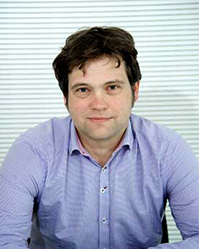Interim evaluation of three Centres for Excellence begins
Yesterday, the panel appointed to evaluate three Centres for Excellence in Education met for the first time.
 – I am delighted to be involved in this important interim evaluation of these three Centres for Excellence in Education. It is a fantastic opportunity to learn more about the work of the centres and to understand how they are contributing to the enhancement of university learning and teaching in Norway. As a panel, we are looking forward to working with the centres to evaluate their achievements and plans for the future and to discuss how these might be developed further, says panel chair Professor Paul Ashwin of Lancaster University.
– I am delighted to be involved in this important interim evaluation of these three Centres for Excellence in Education. It is a fantastic opportunity to learn more about the work of the centres and to understand how they are contributing to the enhancement of university learning and teaching in Norway. As a panel, we are looking forward to working with the centres to evaluate their achievements and plans for the future and to discuss how these might be developed further, says panel chair Professor Paul Ashwin of Lancaster University.
Ashwin is joined in the panel by a group of international experts:
- Professor Celia Duffy, Royal Conservatoire of Scotland
- Professor Andreas Eichler, University of Kassel
- Professor Peter Maassen, University of Oslo
- Professor Stephanie Marshall, Higher Education Academy
- Student Trine Oftedal, The National Union of Students in Norway
- Professor Richard Reece, University of Manchester
The panel will assess the three centres bioCEED, CEMPE and MatRIC, all of which received status as Centres for Excellence (SFUs) in 2014. SFU status is awarded for five years, with the possibility of prolongation for another five years subject to an interim evaluation.
Aiming for both assessment and Development
As part of the interim evaluation, the panel assesses whether the centres are on the right track when it comes to the goals the centres set for the first five-year period and the goals set for SFUs, as well as the impact the centres have had so far. In addition, plans for the potential next five-year period will be assessed.
«Although there is an element of auditing to this, NOKUT and the panel also intend the process to contribute to the centres’ development,» says Helen Bråten, Project Manager for the Centres for Excellence in Education Initiative at NOKUT.
Final decision by the end of the year
The panel’s first meeting kicks off the assessment. The next milestone is the centres’ self-evaluations, which the panel will receive in April. The panel will then conduct site visits to the centres before the summer. Afterwards, the centres will receive feedback on their strengths and weaknesses.
«The centres will then write action plans for strengthening areas where they have not achieved as much as hoped for, which in turn will be assessed by the panel,» explains Bråten.
The panel will then send a recommendation to the NOKUT board on whether they believe each of the centres should have their SFU status extended. The final decision is expected by the end of this year.
Read more about the Centres for Excellence in Education Initiative (SFU)
